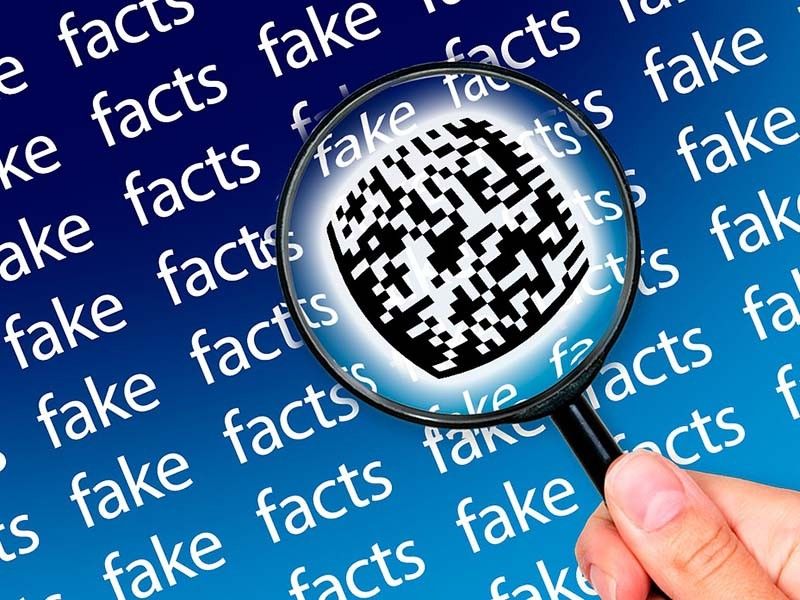Will disinformation define our democracy?

Disinformation is a defining issue of our time, and we are at a defining moment.
There is a widely circulated story online that claims before he was president, Ferdinand Marcos Sr. received a million tons of gold lawyering for the so-called Tallano royal family. One post read, "Marcos was still just a lawyer and not yet president then, but he was already the richest individual in the whole world."
This preposterous story, of course, is untrue. There is no historical proof of a Tallano royal family. Nor is it even possible to own a million tons of gold when only about 200 thousand tons have been mined throughout history.
This deceptive story has been used to explain away how the Marcoses amassed their wealth. It has been presented as an alternative narrative to the multiple accounts and even court decisions that point to over two decades of grand corruption as the source of their riches.
This lie and lies like it— such as those that misrepresent the country’s economy and the government’s performance during the dictatorship and those that whitewash the many human rights atrocities during martial law— have endured, even after the Marcos regime was toppled in 1986.
More recently, these deceptive narratives have found a new home online as critical parts of troll armies’ election-related information manipulation tactics. Information manipulation— such as misinformation and disinformation — uses various content types to influence, disrupt, or distort the information ecosystem. Amplified by troll armies, these tactics are used to devalue facts and strategically manipulate people's attitudes and even their voting behavior.
These information manipulation tactics have proven to be so effective that come Monday; I wouldn’t be surprised if some voters head to the polls, believing lies and false narratives, like those mentioned above, to be gospel truth.
This is because, when well executed, information manipulation tactics gain influence organically, even spreading through authentic channels and networks, despite their inauthentic origins. So while disinformation often starts from troll pages and accounts, it targets real users that then spread this disinformation to their own real networks. Through these tactics, election-related disinformation is able to spread fast and drown out first-hand accounts of people who lived through martial law and challenge historical facts.
A few weeks ago, our advocacy group Democracy Watch and the UP Institute of Human Rights hosted a group of former college editors during Martial Law to share their sobering stories of loss and hardship under the Marcos regime. Former BSP Governor Diwa Guinigundo shared that he was one of the 72,000 arrested during Martial Law, that at least 34,000 were tortured and 3,000 were killed.
Ding Marcelo, a former editor for the Manila Bulletin, spoke about the tight censorship grip with which Malacañang held the media, the military’s presence in newsrooms, and the constant pressure on journalists to parrot the government’s line.
Bob Corrales, a former student leader who was imprisoned in Camp Crame in 1973, debunked claims that no human rights violations occurred during Martial Law, citing court cases, both here and abroad, that found Marcos responsible for the atrocities that happened during his dictatorship.
This opportunity to hear all those stories first-hand from those that lived through Martial Law was an impactful experience. Sadly, stories such as these compete for attention online, often losing out to fake news and disinformation that are purposely crafted to be sensational, emotionally charged and eye-catching.
Let’s face it, the Philippines has a massive disinformation problem, and our democracy hangs in the balance.
Over the last few months, Democracy Watch and its partners have been speaking with students around the country as part of its voter education campaign to combat disinformation and promote informed and responsible voting. During these talks, students were given guidance on how to proactively verify content and strategies to more effectively share good information online.
Democracy Watch also emphasized the importance of critical thinking to combat disinformation. An essential part is an awareness that when we are online, we are all targets of information manipulation tactics—often engineered by well-funded and organized professionals out to shape how we understand issues and manipulate our behavior, not only at the May polls but even after.
Without a doubt, how we vote on the 9th of May will dictate what history books will say about disinformation and Philippine democracy. Will we elect leaders based on policy platforms, values, and track records, or half-truths and false narratives?
But regardless of the results of the election, the battle against disinformation is far from over. Attempts at information manipulation and historical revisionism will not suddenly stop once the ballots are counted. It will continue to fester as it has for decades and invade digital public spaces as it has in more recent years.
The battle against disinformation is also a long one. Government policies must be put in place to combat disinformation, but they must be compatible with fundamental freedoms of expression and of the press. Rather than election-time endeavors, civic and voter education must be continuous and must adapt to the evolving information ecosystem. Academic institutions must also remain bastions of activism and critical thought and step up to parry any attempts at historical revisionism. Lastly, platforms, regulators, journalists and civil society groups must find more ways to work together to improve fact-checking capabilities and takedown these troll armies.
The Philippines has a disinformation problem. it's crept into our digital spaces, it’s shaping our elections, and it’s weakening our democracy. We need to address it before it defines us.
Paco A. Pangalangan is the executive director of think tank Stratbase ADR Institute.
- Latest

























